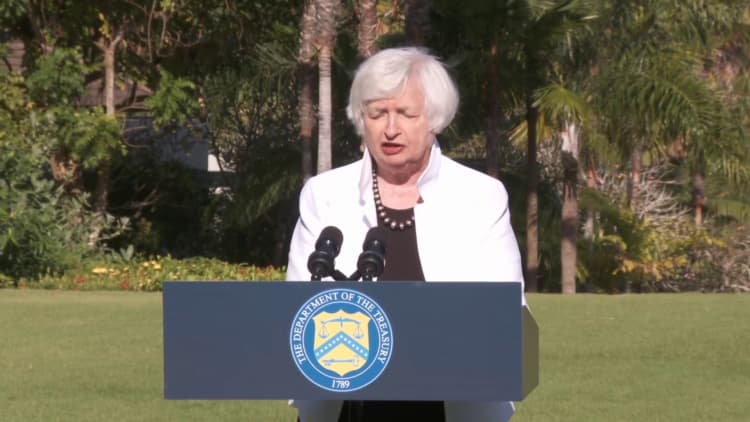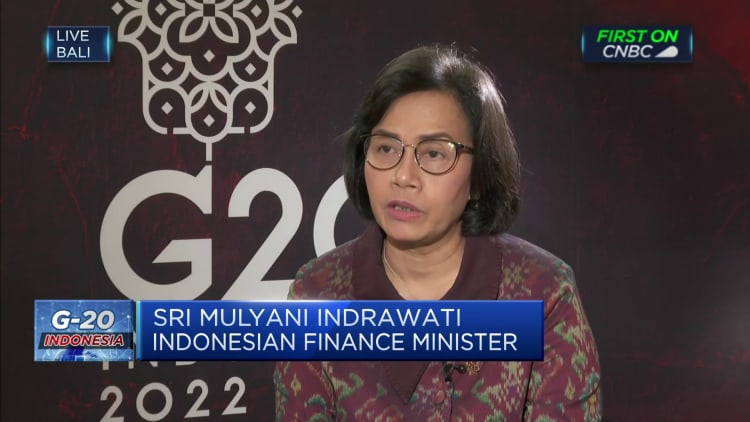Global interest rates will likely keep rising until 2023 when heated prices will begin to cool in response to the actions from central banks, according to Kristalina Georgieva, managing director of the International Monetary Fund.
Commodity prices, such as oil, may have leveled out and started sliding in recent months, but Georgieva said that they will do so in response to recession risks and not necessarily because inflation has been tamed.
"Central banks are stepping up to control inflation, it's a priority. They have to to keep going until it's clear that inflation expectations remain firmly anchored," Georgieva told CNBC at the G-20 meeting in Bali on Friday.
"At the moment we still see inflation going up; we have to throw some cold water on it."

Pandemic-led disruptions to supply chains have created bottlenecks while the war in Ukraine has exacerbated these shocks. The result has been a surge in prices of goods including key staples like food, fertilizer and energy.
While food price inflation was already in motion before the pandemic and war, the two events have only added to the issue. Global food prices reached an all-time high between March and April this year, according to the World Bank. The World Bank's Food Commodity Price Index for March-April rose 15% over the previous two months and was more than 80% higher than two years ago.
The Food and Agriculture Organization told the G-20 Friday that the global malnourished will increase by 7.6 million this year, and rise again by 19 million in 2023.
At the moment we still see inflation going up; we have to throw some cold water on itKristalina GeorgievaIMF
Oil prices have levelled out and starting sliding, falling from a high of $120 a barrel in early June to under $100 a barrel this week.
Yet, consumer inflation in the U.S. registered a 40-year high of 9.1% last month, a condition described by Treasury Secretary Janet Yellen at the G-20 as "unacceptably high".
While much data used to determine inflation has a lag, Georgieva told CNBC that all the signs indicated that inflation has not yet been reined in.
She added that it is paramount that inflation is controlled otherwise incomes will be eroded, hitting hardest in the poorest parts of the world.
Reflecting lessons learned from past economic crises, Yellen told the G-20 on Friday that it was crucial for governments to establish and maintain a "playbook" of policy responses which would "minimize the duration and severity of recessions" and "mitigate adverse economic consequences on firms and individuals."

Elaborating on Indonesia's "playbook," Finance Minister Sri Mulyani Indrawati said at the G-20 on Friday that controlling demand was key at this juncture as fiscal and monetary easing measures executed at the start of the Covid-19 pandemic had restored demand but not supply.
Indonesia for example lifted its 3% fiscal deficit cap — for three years — in order to inject stimulus in the economy countering "extraordinary" conditions imposed by the pandemic, she said.
"We have to admit that demand has been boosted by countercyclical policy," she said.
"Two years ago, we tried to rescue the economy from both supply and demand collapse because of the pandemic." Sri Mulyani said however, since then the recovery in demand has outstripped that of supply.

